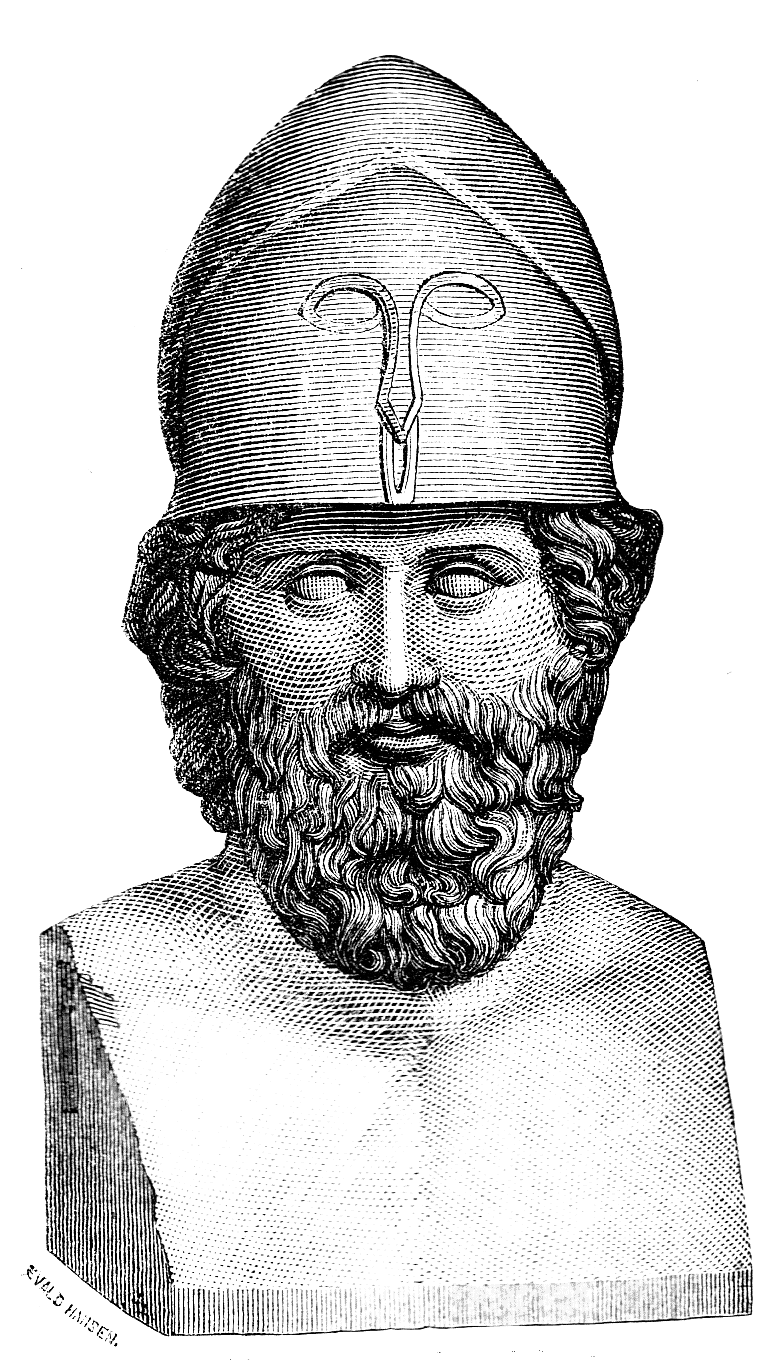Themistocles was an Athenian politician and general. He was one of a new breed of non-aristocratic politicians who rose to prominence in the early years of the Athenian democracy. As a politician, Themistocles was a populist, having the support of lower-class Athenians, and generally being at odds with the Athenian nobility. Elected archon in 493 BC, he convinced the polis to increase the naval power of Athens, a recurring theme in his political career. During the first Persian invasion of Greece he fought at the Battle of Marathon and was possibly one of the ten Athenian strategoi in that battle.In the years after Marathon, and in the run-up to the second Persian invasion of 480–479 BC, Themistocles became the most prominent politician in Athens. He continued to advocate for a strong Athenian Navy, and in 483 BC he persuaded the Athenians to build a fleet of 200 triremes; these proved crucial in the forthcoming conflict with Persia. During the second invasion, he effectively commanded the Greek allied navy at the battles of Artemisium and Salamis in 480 BC. Due to his subterfuge, the Allies successfully lured the Persian fleet into the Straits of Salamis, and the decisive Greek victory there was the turning point of the war. The invasion was conclusively repulsed the following year after the Persian defeat at the land Battle of Plataea.
After the conflict ended, Themistocles continued his pre-eminence among Athenian politicians. However, he aroused the hostility of Sparta by ordering the re-fortification of Athens, and his perceived arrogance began to alienate him from the Athenians. In 472 or 471 BC, he was ostracised, and went into exile in Argos. The Spartans now saw an opportunity to destroy Themistocles, and implicated him in the alleged treasonous plot of 478 BC of their own general Pausanias. Themistocles thus fled from Greece. Alexander I of Macedon temporarily gave him sanctuary at Pydna before he traveled to Asia Minor, where he entered the service of the Persian king Artaxerxes I . He was made governor of Magnesia, and lived there for the rest of his life.
Themistocles died in 459 BC, probably of natural causes. His reputation was posthumously rehabilitated, and he was re-established as a hero of the Athenian cause. Themistocles can still reasonably be thought of as "the man most instrumental in achieving the salvation of Greece" from the Persian threat, as Plutarch describes him. His naval policies would have a lasting impact on Athens as well, since maritime power became the cornerstone of the Athenian Empire and golden age. Thucydides assessed Themistocles as "a man who exhibited the most indubitable signs of genius; indeed, in this particular he has a claim on our admiration quite extraordinary and unparalleled".
Wikipedia
✵
524 BC – 459 BC
